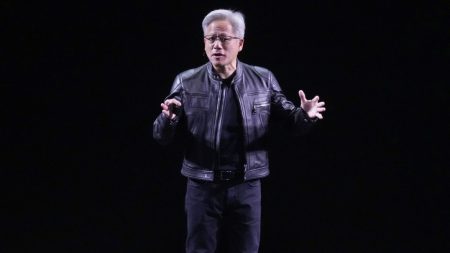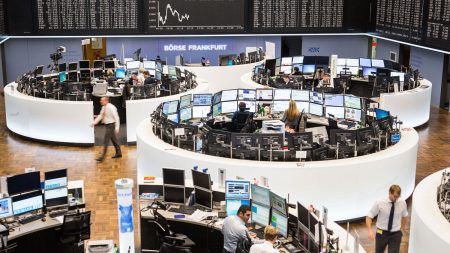Mistral AI, a prominent European AI startup valued at around €6 billion, is reportedly setting its sights on expansion into the United States, with plans in motion to establish an office in Palo Alto, California. This strategic move represents a significant ambition for the company, suggesting a desire to strengthen its presence within the tech-centric environment of Silicon Valley. Currently operating from Paris, Mistral AI aims to attract top talent across various domains, including engineering, AI research, and sales, which are essential for driving future growth. Furthermore, the proposed transition away from Paris indicates the company’s serious intentions to secure a more favorable position in the vibrant U.S. tech landscape, where opportunities for startups are often deemed more abundant than in Europe.
Mistral AI has developed a reputation for providing sovereign AI solutions to both European and global markets, making substantial contributions to the continent’s domestic AI industry. This is particularly crucial as Europe seeks to decrease its reliance on AI technologies from dominant players like China and the United States. However, a shift to the U.S. might be perceived as detrimental to the European AI ecosystem, potentially undermining regional efforts aimed at establishing a robust AI industry within the continent. The company’s growth trajectory highlights the challenges faced by European AI entities striving to retain their operations and workforce amidst the allure of potentially more lucrative opportunities overseas.
The funding landscape for Mistral AI has been bolstered by investments from prominent tech firms, including Nvidia and Microsoft, alongside prominent venture capital firms like Andreessen Horowitz. As of now, the company employs over 100 staff members, with a majority based in Paris and a growing contingent in the U.S. This distribution underscores Mistral AI’s current operational base while foreshadowing a possible shift in dynamics should their ambitions in the U.S. materialize. The interest from various investors indicates Mistral AI’s strong market position, but it also reflects a broader trend where European tech firms are increasingly looking toward the U.S. for scaling and capitalizing on expansive resources.
Several factors underscore the appeal of the U.S. market for European startups, particularly in tech and AI. Not only does the U.S. provide a larger pool of investors and a more extensive capital structure, but the regulatory environment is often perceived as more conducive to the growth of startups. In stark contrast, European regulations can at times hinder rapid evolution and expansion, prompting many firms to explore opportunities across the Atlantic. Nonetheless, entering the U.S. market comes with its own set of challenges, particularly given the intensified competition from established players and a myriad of emerging AI enterprises that have also set their sights on growth within the competitive landscape of American technology innovation.
Mistral AI’s recent partnership with Microsoft and Capgemini serves as a potent example of its commitment to fostering the adoption of generative AI technologies. This collaboration highlights their focus on tailoring highly customized AI solutions for varied industries, combining Mistral AI’s innovative models with Microsoft’s cloud capabilities and Capgemini’s industry expertise. Both parties have expressed enthusiasm regarding the potential of this partnership; Mistral’s CEO emphasized the importance of personalization and multilingual support, which are critical for organizations looking to implement generative AI into their operational frameworks. The synergy of these three entities could lead to transformative developments within various business ecosystems globally.
As Mistral AI embarks on its journey towards U.S. expansion, it may need to leverage its competitive advantages, such as cost-effective AI model development and operational efficiency, in order to carve out a niche for itself within an already bustling market. The age of the company is relatively young, but its aspirations and strategic partnerships could propel it forward in a landscape that is becoming increasingly sophisticated. Ultimately, the trajectory of Mistral AI will not only impact its own growth but also the wider European tech scene, possibly serving as an impetus for further investments and innovations across the continent as entities analyze the ramifications of such international endeavors. The ongoing developments surrounding Mistral AI are a testament to the dynamic nature of global AI expansion and the multifaceted challenges and opportunities this arena presents.














